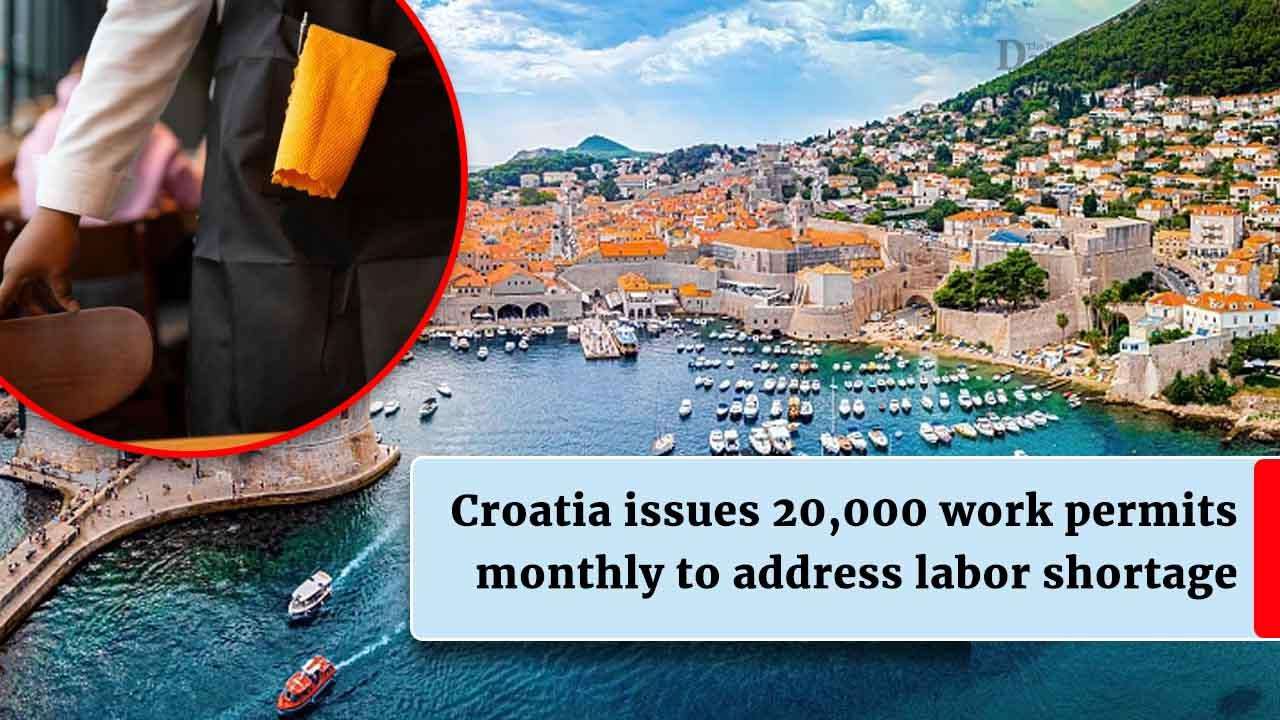As part of its commitment to alleviating the domestic workforce shortages, Croatia issues work permits to around 20,000 foreign visitors each month.
The Croatian Interior Ministry reports that most of these licenses are being issued in order to pursue employment.
If things keep going this way, Croatia might be issuing twice as many permits in two months as it did in the same period in 2023—by the end of July, 132,000 permits had been issued.
Croatia is 'generous' with residence permits as it struggles to fill jobs outside Zagreb
Between January and July of 2024, the Interior Ministry issued over 85,000 residence permits; in the same period in 2023, nearly 113,000 permits were issued. Furthermore, 32,000 permits—or 78% of the permits issued in 2023—were extended.
According to Poslovni, 15,000 seasonal work licenses are being issued, which indicates that the number of seasonal workers is also rising.
All Croatian cities and municipalities, however, have seen an increase in the number of licenses issued; Bjelovar-Bilogora has surpassed last year's figures.
The biggest differences in the number of permits granted were recorded in Istria, Dubrovnik-Neretva and Split-Dalmatia counties. More specifically, 14,000 permits were approved in Istria, and 3,000 were extended, while 7,000 new permits and 1,500 extensions were recorded in Dubrovnik County.
That is not the case with Zagreb, as the city as well as the county, approved 16,000 new work permits and extended 10,000 – a relatively small number compared to the population of this city.
Istria required the most foreign workers in 2023
Coastal counties are more likely to attract foreign labourers since they require a larger employment force during the peak tourism season.
In Lika-Senj Country, foreign labourers make up one-third of the labour force, and out of 27,000 permits issued, only 309 seasonal workers were received by the City of Zagreb. The government is being pressured to address the employment shortages soon as a result of Croatia's growing popularity as a travel destination.
Thirty vocations, encompassing a wide range of professions, are required in Croatia, according to the 2023 EURES Report on Labour Shortages.
Some of the most required workers in Croatia are those in construction work (crane, hoist, plant operators), drivers (heavy truck and lorry chauffeurs), electricians (mechanics and repairers) as well as those in the service industry (waiters, chefs). This is the full list of the most required professions in Croatia.



_1.jpg)




.svg)

_3.jpg)